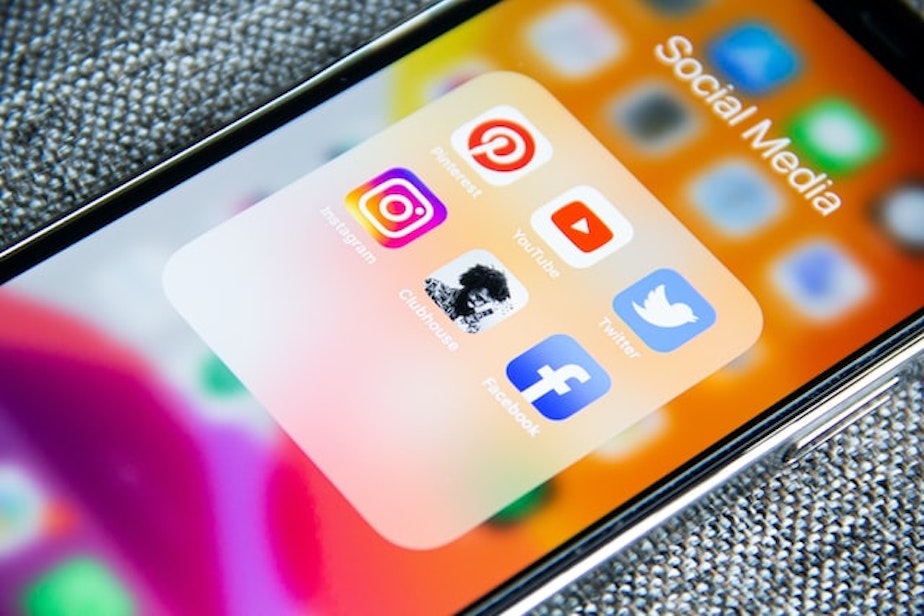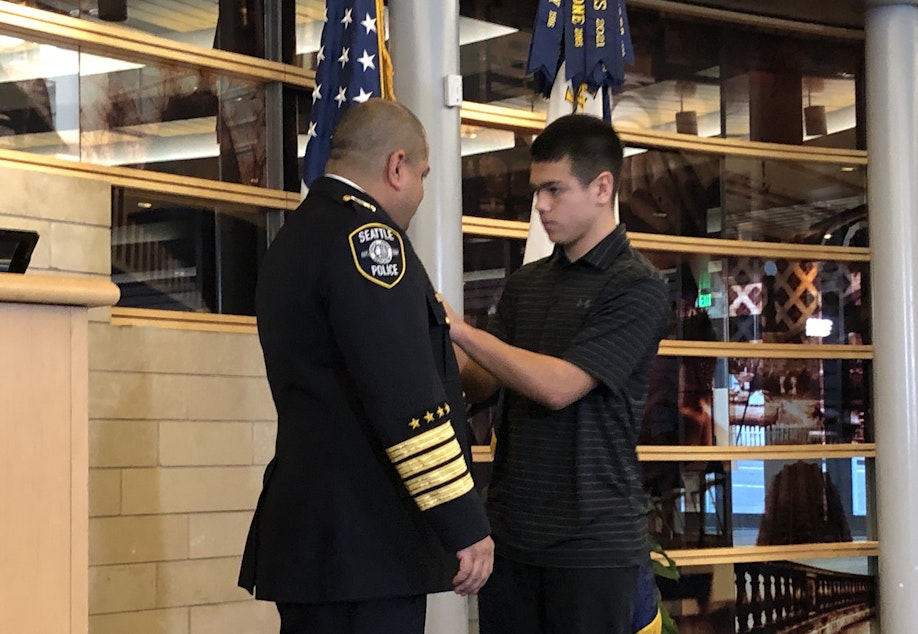How much blame does social media bear? Today So Far

- Two Washington school districts have filed lawsuits against social media companies, arguing that their products can harm youth mental health. Some experts agree with that assessment, but not everybody.
- I accidentally participated in Dry January. Are you giving up anything this month?
This post originally appeared in KUOW's Today So Far newsletter for January 13, 2023.
Happy Friday the 13th! I know a lot of folks don't like that day or number, but just like Mike Ness said, "13 is my lucky number."
The Seattle and Kent school districts have filed lawsuits against social media companies, arguing that their products are harming youth mental health. How this will play out in the courts remains to be seen. A lawsuit exactly like this hasn't happened before.
"The basic theory is the companies shouldn't get immunity for that process of matching vulnerable people with highly problematic content," Ryan Calo, a law professor at the University of Washington, told KUOW. "And who knows what the Supreme Court will do."
This sort of conversation around social media isn't new to child health experts, such as Dr. Dimitri Christakis, director of the Center for Child Health Behavior and Development at Seattle Children's Research Institute.
"Many of us who have been researching the effects of media on children have been concerned for a long time about the negative effects on children's emotional and mental health, as well as other developmental outcomes," Christakis said.
Sponsored
"It's very difficult for a parent to know what their child is looking at online. But Instagram knows it, Facebook knows it, TikTok knows it. And instead of alerting parents or caregivers or teachers or pediatricians that, 'Hey, this child is looking at a lot of suicide videos,' they just feed that child more of the same content."
Check out KUOW's full conversation with Calo and Chistakis here. Beyond that, check out NPR's three initial takeaways from the lawsuit here.
It should be noted that there are other experts out there who are skeptical of these arguments around social media, such as Dr. Katy Pearce with UW's Department of Communication. She recently told KUOW that parents should certainly monitor the content their kids are consuming.
"But decades of research shows that the effects are small and under very specific circumstances. And in fact, for many people with mental health issues, online support is essential. Also, the research cited in the lawsuit is very easy to critique. It is all correlational. Heck, there are many reasons why kids might be depressed nowadays environmental issues, racism, a global pandemic, inflation."
While two Washington cities have made this move against social media companies, don't expect any action at the state level anytime soon. State Superintendent Chris Reykdal has his eye on the lawsuits, but says that there are no current plans to jump on the bandwagon. Despite having no interest in joining the legal fight, Reykdal did offer some fighting words. While he notes there are positives to social media (exchange of information, connecting people), he also says "You can't just sell the positives of it without recognizing that some of the darkest things students see are on there. And that too has an impact and influence."
Sponsored
Unlike the youthful days that many of us adults had, Reykdal argues that young folks these days are living a different reality.
"We were insulated. We had a chance to go through hard times, bumps and bruises, puberty and bullying and other tough things in a world where that didn't follow us home. It wasn't there when we woke up in the morning, it wasn't in our face in text and print and in social media, and in messaging."
The superintendent continued to say that that "it is not OK to say whatever you want, wherever you want. In fact, it is illegal sometimes. Some speech is harmful, dangerous, hate speech and we've got to figure out how to limit this in some way that is within the law, protect people's First Amendment rights. But our kids are wearing this."
Read the full story here.
I accidentally participated in Dry January — that month-long effort to abstain from alcohol after the holidays. It just happened that I hadn't had a drink for about a week before I noticed it.
Sponsored
Soundside's Jason Burrows is doing Dry January intentionally. For him, it started as a novel idea with a friend, but as he found out, Dry January is a big deal for a lot of people. He ran a few informal surveys across social media and found that 25% of his friends on Twitter were doing it, and 21% on Instagram. He also asked KUOW's staff via our Slack channels and found 27% of us are nixing booze this month. After hearing that, I figured I'd just keep it going, much to the chagrin of bartenders at my usual pinball spots (I have noticed they started charging me for soda water).
Jason not only discovered that more folks than he expected do this every January, but that there are experts who have noted some effects, such as saving money or sleeping better. "People reported noticing that their concentration improved," Dr. Katherine Walukevich-Dienst told KUOW. She’s a clinical psychologist at the University of Washington. "And so even in the short-term, just going alcohol free for a month can really have some profound benefits on your health and well being ... And these benefits are even noticed among people who don't meet the full 30 days."
There is no way to check this later, but I have a couple Dyer predictions for Dry January: Pot shop sales will rise at the same time, and sugar consumption will go up. Are you going "dry" with anything this month? Avoiding bad food? No social media? No TV? I'm curious. Email me at dyeoxley@gmail.com and let me know.
The Friday Five: News you may have missed over the week
- Special counsel will probe government documents at Biden's home and private office
- MacKenzie Scott is shaking up philanthropy's traditions. Is that a good thing?
- Leavenworth gets Prime screen time in 'Somebody I Used to Know'
- Moscow, ID residents shaken by murders, prepare for what’s next following suspect's arrest
- With a debt ceiling fight expected, McCarthy suggests a possible deal with Democrats
Sponsored
AS SEEN ON KUOW

ALSO ON OUR MINDS

Sponsored
Exxon climate predictions were accurate decades ago. Still it sowed doubt
Decades of research by scientists at Exxon accurately predicted how much global warming would occur from burning fossil fuels, according to a new study in the journal Science. The findings clash with an enormously successful campaign that Exxon spearheaded and funded for more than 30 years that cast doubt on human-driven climate change and the science underpinning it. That narrative helped delay federal and international action on climate change, even as the impacts of climate change worsened.

